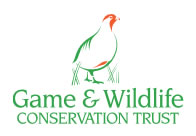by Hugo Straker, GWCT Advisor in Scotland
Controlling corvids during the nesting and brood rearing season has been shown to improve both red grouse and upland wader breeding success. Likewise on the lowground and hill fringe, wild pheasants and partridges, along with farmland songbirds, all benefit from diligent corvid control. But are your keepers following the law and best practice when running crow cages and Larsen traps?
General licences in England and Scotland are issued annually and therefore can be subject to revisions. Whilst GWCT and others such as SGA, NGO and BASC will highlight any changes that may affect keepering practices, it is worth printing off the relevant annual licences each year so that each keeper can read them. You do not need to possess one but everyone needs to be fully aware of the important conditions of use. This is crucial as for example in Scotland the permissible decoy species differ between Larsen traps and multi-catch crow cages. If you fall foul of General Licence conditions there is now a real risk that the ability to operate under licence will be withdrawn, with disastrous consequences to jobs, effective wildlife management and biodiversity.
Compliance with the law is an obvious must. Adopting best practice is also important as it can improve catching success and should eliminate poor welfare issues that may arise. Attempted prosecutions of alleged wildlife crime continue but the best defence in court is through being able to demonstrate good responsibility and that all reasonable steps have been taken to ensure no crime against wildlife is committed.
GTS offers excellent training opportunities in all aspects of modern and legal predator control. Our certificated “Larsen Traps and Multi-Catch Crow Cage Use” course provides a thorough update for keepers on changes to the law and what constitutes best practice whilst also demonstrating on-going due diligence - important in today’s era of vicarious liability in Scotland.
We're looking to run a series of these courses in March and will publish further details when confirmed. For more information on our specialist courses please contact Irene Johnston at our Scottish HQ on ijohnston@gwct.org.uk or 01738 551511.
Following the introduction of vicarious liability in Scotland, GTS offers annual reviews of keepering practices on individual estates with the accompanying report providing an essential “paper trail” to demonstrate that all reasonable steps were taken and due diligence exercised to prevent the offence being committed. For more information on our estate inspections please contact Hugo Straker on hstraker@gwct.org.uk or on 01620 830230.
 GWCT News & Advisory
GWCT News & Advisory

No comments:
Post a Comment